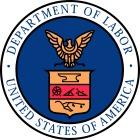Today, the U.S. Department of Labor (DOL) announced its final rule on the minimum salary that white-collar employees must be paid to qualify as exempt from the overtime requirements under the Fair Labor Standards Act (FLSA). The new rule raises the current salary level that such employees must receive in order to qualify as “exempt” from $23,660 annually, to $47,476 annually. The new rule takes effect December 1, 2016.
Under current DOL regulations, most white collar employees – executives (supervisors), administrative employees, and professionals – are exempt from the FLSA overtime rules and need not be paid overtime for hours worked over 40 in a workweek if they satisfy two conditions. First, they must perform “exempt” duties as defined by the DOL regulations. Second, they must be paid a guaranteed salary of at least $455 per week, or about $23,660 annually.
The new rule, first proposed in a slightly different form back in 2015, raises the salary level significantly to $913 per week, or about $47,476 annually. This new salary level is set at the 40th percentile of weekly earnings for full-time salaried workers in the lowest income Census region (currently the South). This number is less than the $970 per week, or about $50,440 annually, that the DOL had originally proposed. In addition, the DOL will now permit up to 10 percent of the salary level to come from non-discretionary bonuses and incentive payments (including commissions).
This new threshold of $913 per week/$47,476 annually will be tied to the 40th percentile for full-time salaried workers in the lowest income Census region going forward, and will be updated every three years. It is currently expected to rise to more than $51,000 annually when the first update takes effect on January 1, 2020.
In addition, under the new rule the salary level for employees who qualify for the “highly compensated employee” exemption will rise from $100,000 per year to $134,004 per year. This level is the annual equivalent of the 90th percentile of full-time salaried workers nationally.
One change contemplated by the DOL when the agency first proposed this new rule back in 2015 will not take effect: changes to the “duties” test. The DOL has announced that the final rule will leave the existing duties tests for the executive, administrative, and professional exemptions in place.
The DOL estimates that 4.2 million additional workers will become eligible for overtime as a result of this rule change, including approximately 101,000 workers in the State of Michigan. This is estimated to raise total wages for American workers by approximately $12 billion over the next 10 years.
Many employers will be impacted by this new rule, as many employers have at least one “exempt” employee who is paid less than $47,476 annually. Thus, employers should scrutinize their workforces carefully to determine if changes in exempt status are necessary. Options include:
-
increase the salary of an employee who meets the duties test to at least $47,476 annually to retain his or her exempt status;
-
convert the employee to non-exempt status and pay an overtime premium of one-and-one-half times the employee’s regular rate of pay for any overtime hours worked;
-
convert the employee to non-exempt status and reduce or eliminate overtime hours;
-
convert the employee to non-exempt status and reduce the amount of pay allocated to base salary (provided that the employee still earns at least the applicable hourly minimum wage) and add pay to account for overtime for hours worked over 40 in the workweek, to hold total weekly pay constant; or
-
use some combination of these responses.
Given the significance of these changes, and the expected impact on the American workforce, employers are encouraged to consult with legal counsel to discuss their options and strategies for implementing changes, if necessary.


 On March 23, 2016, the U.S. Department of Labor (DOL) issued a final rule, first proposed in June 2011, requiring employers and their labor relations consultants, including law firms, to
On March 23, 2016, the U.S. Department of Labor (DOL) issued a final rule, first proposed in June 2011, requiring employers and their labor relations consultants, including law firms, to 




